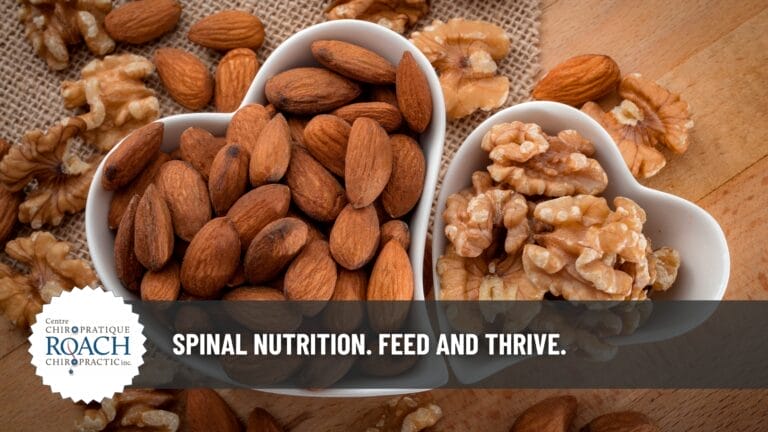Intermittent Fasting, Weight Loss

Intermittent fasting (IF) has gained popularity as an effective strategy for weight loss, metabolic health, and overall wellness. By cycling between periods of eating and fasting, individuals can optimize their body’s ability to burn fat, regulate hormones, and improve digestion. Chiropractic care plays a complementary role in weight management by enhancing mobility, reducing inflammation, and supporting nervous system function. This blog post explores the connection between intermittent fasting, weight loss, and chiropractic care, identifying symptoms, proactive management strategies, and the importance of ongoing care.
Understanding Intermittent Fasting and Weight Loss
Intermittent fasting involves structured periods of food restriction, allowing the body to shift from glucose-burning to fat-burning mode. Common fasting methods include:
- 16:8 Method – Fasting for 16 hours and eating within an 8-hour window.
- 5:2 Diet – Eating normally for five days and restricting calories for two days.
- Alternate-Day Fasting – Alternating between fasting and regular eating days.
Canadian and Worldwide Statistics
- In Canada, 63.1% of adults were classified as overweight or obese in 2018.
- Globally, intermittent fasting has been shown to reduce body weight by 0.8% to 13.0% in clinical trials.
- Intermittent fasting is the most popular diet in the U.S., tied with the Atkins diet.
Identifying Symptoms of Poor Metabolic Health
Individuals struggling with weight management may experience:
- Frequent fatigue and sluggishness due to insulin resistance.
- Digestive discomfort, including bloating and irregular bowel movements.
- Joint pain and inflammation, exacerbated by excess weight.
- Difficulty losing weight, despite exercise and calorie restriction.
Step-by-Step Guide to Managing Weight Loss with Chiropractic Care
1. Chiropractic Adjustments
Chiropractic care focuses on spinal alignment and nervous system function, helping to regulate metabolism and reduce inflammation. Adjustments may relieve joint stiffness, muscle tension, and nerve interference.
2. Nutritional Guidance
Chiropractors often provide dietary recommendations to support intermittent fasting, including:
- Whole foods rich in fiber and protein to sustain energy levels.
- Hydration strategies to prevent dehydration during fasting periods.
- Anti-inflammatory foods to reduce oxidative stress.
3. Exercise and Mobility Training
Regular movement enhances fat-burning and muscle tone. Chiropractors may recommend:
- Low-impact exercises such as walking or swimming.
- Strength training to improve metabolic function.
- Stretching routines to maintain flexibility.
4. Stress Management
Chronic stress can disrupt hormonal balance and hinder weight loss. Chiropractic care helps regulate cortisol levels, reducing stress-related weight gain.
Chiropractic Quote
“Intermittent fasting is not just about when you eat, but how your body learns to burn fat efficiently. A reset for your metabolism, a boost for your health.” – Dr. Jason Fung
Short and Long-Term Benefits of Chiropractic Care
Short-Term Benefits:
- Immediate pain relief and improved mobility.
- Enhanced digestion and metabolic function.
Long-Term Benefits:
- Prevention of chronic musculoskeletal issues.
- Sustainable weight management and overall wellness.
Best Practices & Routines for Weight Loss
- Daily stretching to maintain flexibility.
- Proper hydration to support fasting periods.
- Regular chiropractic visits to prevent misalignment.
Exercises & Stretches for Weight Loss
- Core-strengthening exercises to improve posture.
- Yoga and mobility drills to enhance flexibility.
- Resistance training to boost metabolism.
Trusted Resources for More Information
- Intermittent Fasting and Weight Loss
- Intermittent Fasting Statistics
- Chiropractic Care for Weight Loss
The Importance of Ongoing Chiropractic Care
Consistent chiropractic care helps maintain spinal alignment, reducing the likelihood of weight-related musculoskeletal issues. By addressing nerve interference and muscle tension, chiropractic adjustments provide long-term relief and improve overall mobility.
Intermittent fasting and chiropractic care offer a powerful combination for weight management and overall health. By incorporating adjustments, nutritional guidance, and exercise, individuals can optimize their metabolism and prevent chronic conditions. If you’re looking to enhance your weight loss journey, consider scheduling an appointment with Roach Chiropractic to explore personalized treatment options. Contact us today to start your journey toward better health and wellness!
SHARE THIS






